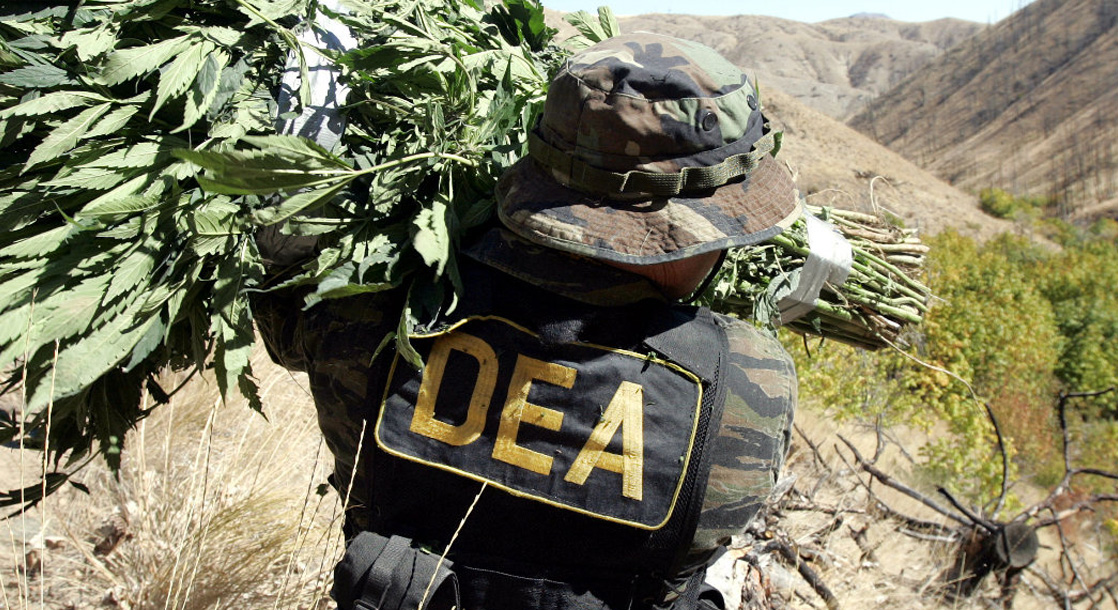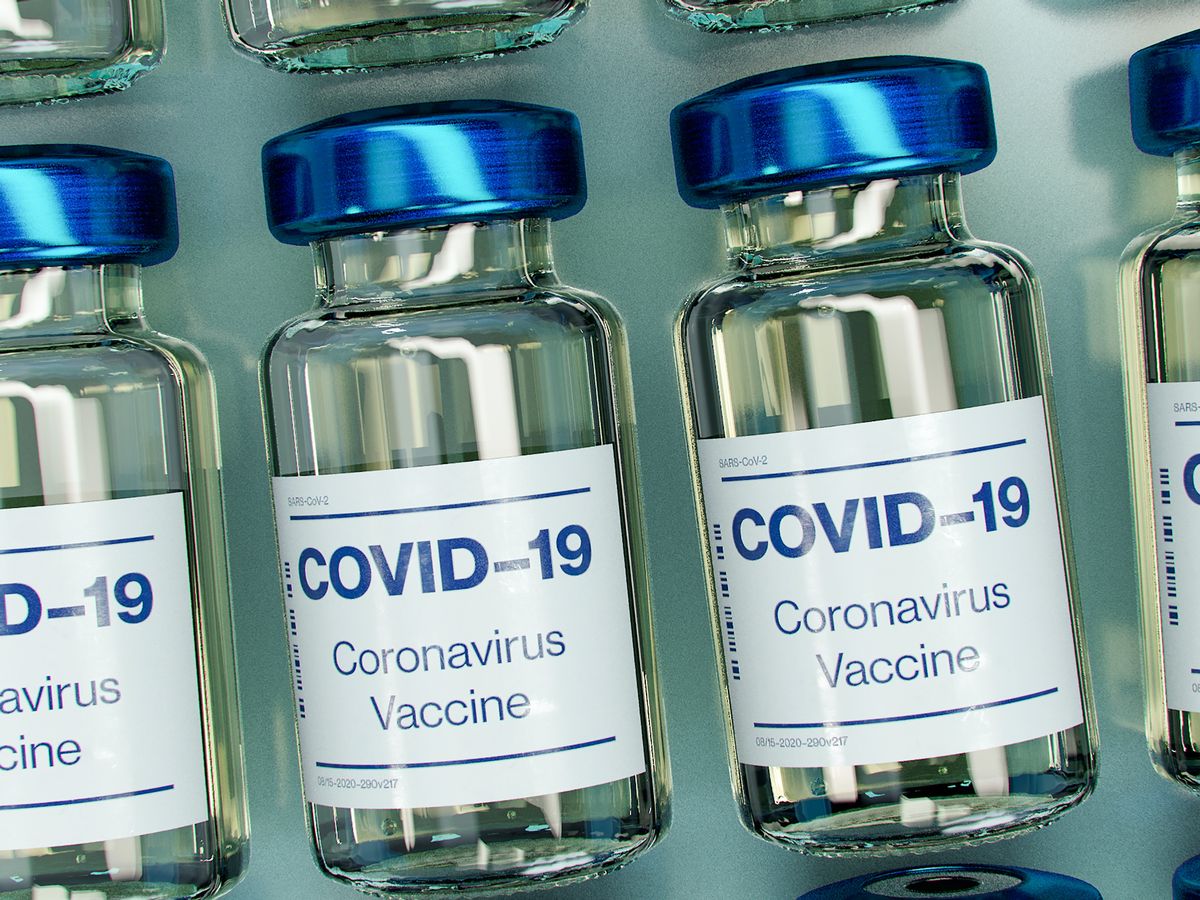It’s less medicinal than cocaine, more addictive than meth and on par with heroin in all respects. What is it? According to the DEA, it’s still marijuana.
After sweeping efforts have resulted in nearly half of the United States legalizing the medical use of marijuana and several adopting recreational laws, the Controlled Substances Act (CSA) continues to classify cannabis as a Schedule I drug. This classification means that cannabis has a “high potential for abuse and no medical benefits”.
In this viral video, the founder of the Men’s Wearhouse, George Zimmer, points out that, “This is the biggest con that has been perpetrated in this country in the last century. Right now, cannabis is a Schedule I drug, which makes it the same as heroin. Everyone in high school hears this and thinks ‘What are they talking about?”
He has a point.
Even a high school kid can see that something doesn’t add up. When the U.S. government officially designates methamphetamine as a less dangerous substance than a plant you can legally grow in half of the country, well, what are they talking about?
Last month, the Drug Enforcement Administration decided to rethink their position and announced that the organization would come to a decision about whether or not to reschedule cannabis on the CSA by June of this year (2016).
While it may sound like a timely decision, the implications of rescheduling cannabis instead of removing it from the Controlled Substances Act entirely (descheduling) could be surprisingly disastrous for medical patients, home growers, and cannabis businesses.
What we, and every high school kid, should be asking right now is if rescheduling marijuana is enough, or if it will just send us back down a spiral to prohibition and complete government control over this medicinal plant.
It’s Under Control: The DEA and the FDA on Marijuana
While the decision to reschedule cannabis has a distinctly “it’s about damn time” feel to it, the real world implications of the move could prove devastating to the medical marijuana system that is currently in place in 24 states. In those states, rescheduling cannabis would disenfranchise medical patients who affordably grow their own cannabis at home.
The move would also annihilate thousands of medical marijuana businesses currently in operation by entangling them in a costly regulatory battle with the Food and Drug Administration (FDA) and would pit them up against the megalithic pharmaceutical industry with its bottomless pockets and standing relationships with the FDA.
Imagine this scenario: In June 2016, the DEA reschedules cannabis as a Schedule II drug on the CSA. This means that cannabis would still be classified as a “drug” that has a “high potential for abuse and some medicinal benefits.”
The rescheduling puts it in a class with OxyContin, Morphine and Opium. While Schedule I drugs are criminally illegal, Schedule II drugs are heavily regulated by the FDA.
Brandon Whitley, the Director of Operations at Aquarius Cannabis, the company who recently purchased the embattled startup Speed Weed, said regulation is a nightmare.
“The cost to bring a Schedule II drug to market is enormous, to the level that not a single company in the cannabis industry right now could afford to do so. The knowledge gap between government regulators and outside companies that would come into the industry would be enormous, and the industry as we know it would be dead.”
On the upside, rescheduling would open the door for cannabis research and pave the way for a windfall of medical marijuana studies in the US. One of the requirements for bringing a Schedule II drug to market is that a company must provide results from clinical trials using human subjects, which could shine the light on many of the effects and potential medical uses of cannabis.
But there are few other benefits if marijuana is rescheduled as a Schedule II or Schedule III drug. In fact, if marijuana is rescheduled, “All state regulations that have been created over the past few years would be wiped out. Regulation and oversight would be under control of the Federal Government and the DEA.
The industry would be in disarray and cease to exist the way we know it, and my strong personal opinion is that the changes would be significantly for the worse,” said Whitley.
The FDA approval process for a scheduled drug isn’t something to take lightly. Every edible and product on the shelf may have to undergo its’ own process of approval, meaning that a jar of cannabis coconut oil would have to go through a separate approval process as the cookie on the shelf right next to it. Depending on the DEA and FDA’s decision about how to regulate cannabis as a scheduled narcotic, every strain may have to go through individual testing. According to Rolling Stone:
If the federal government determines that medical marijuana must be subjected to FDA approval, companies would have to enter a process that can take years to complete and cost more than $1 billion per product. Few, if any, cannabis companies in the U.S. have the resources for that, which might open the door for Big Pharma to muscle in and take over the business. "They could put every medical provider in the country out of business in a matter of months," says Dean Heizer, chief legal strategist at LivWell, one of Colorado's largest marijuana companies.
The hundreds of compounds in cannabis could be isolated and patented by the pharmaceutical companies, leading to a barrage of pharmaceuticals like Marinol, which uses a synthetic and patented form of THC called Dronabinol to achieve some of the effects of cannabis. You may see the same for compounds like THCV, CBD, and CBG.
Imagine now that it’s 2018. Every dispensary in every state with medical and recreational cannabis is either shut down or operating illegally. They’ve been institutionally replaced with a trip to Walgreens to get cannabis pills, which may be the only legal cannabis products on the market. The possession of flowers, hash and edibles could be a criminal offense and the cannabis black market and cartel trade routes could be gaining strength again.
The Argument for Removing Cannabis from the CSA
Obviously no one here is advocating for cannabis to keep its current designation as a controlled substance. So what are the alternatives?
In November 2015, Bernie Sanders introduced a bill to deschedule cannabis from the Controlled Substances Act. The bill would put cannabis in the same class as cigarettes and alcohol, which are not subject to classification by the DEA. Unfortunately, but not surprisingly, the bill found little support in the senate. Even though the bill was praised by former Surgeon General Dr. Joycelyn Elders, not a single senator stepped forward to cosponsor the bill.
According to Jon Gettman, founder of drugscience.org, and communications director for NORML, “This is not a matter of “descheduling,” as many have begun to describe it—as this term actually invokes the procedures of the CSA to remove a drug from its regulatory provisions. Instead, cannabis should be removed from the regulatory jurisdiction of the CSA and regulated by new laws modeled on federal regulations for alcohol and tobacco.”
How to Get Involved
In less than two months, the DEA will make this monumental decision that will shape the future of marijuana in the United States. When that happens, it may just be the beginning of the real fight over the control of cannabis.
While there is no direct way for citizens to lobby the DEA to deschedule cannabis, you can contact your senator and ask them to support bill S. 2237 (Ending Federal Marijuana Prohibition Act of 2015).











